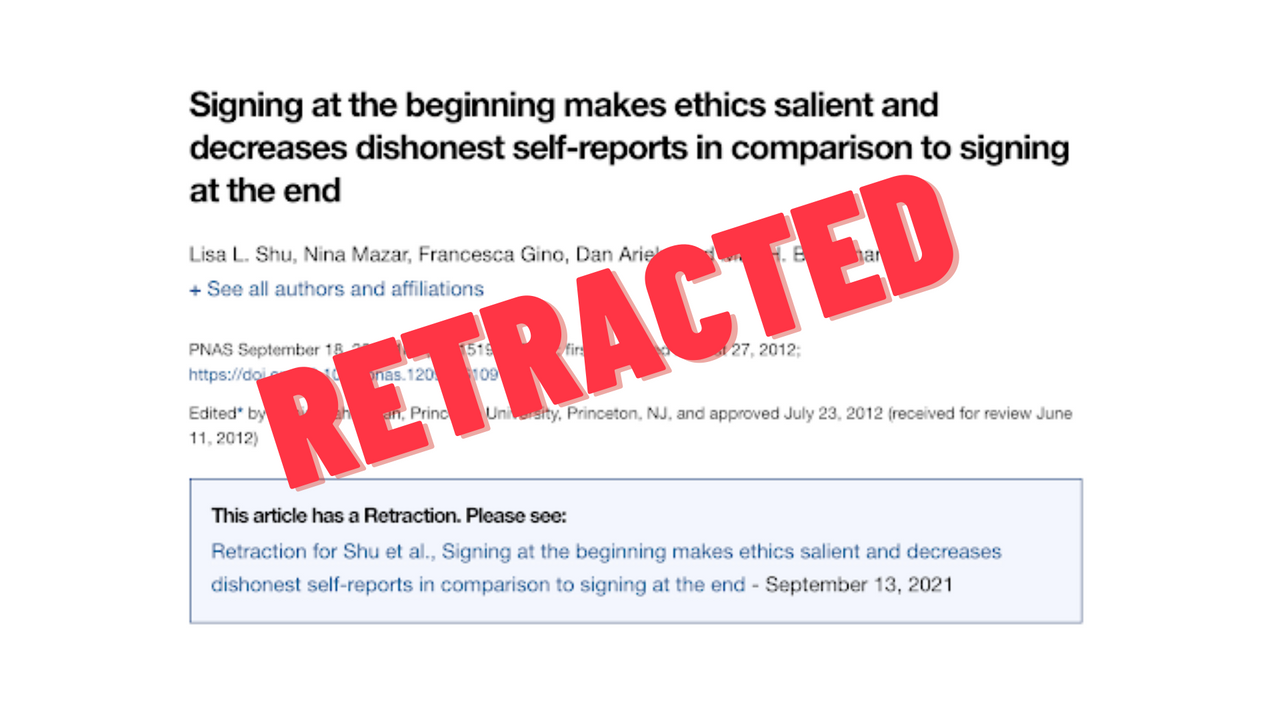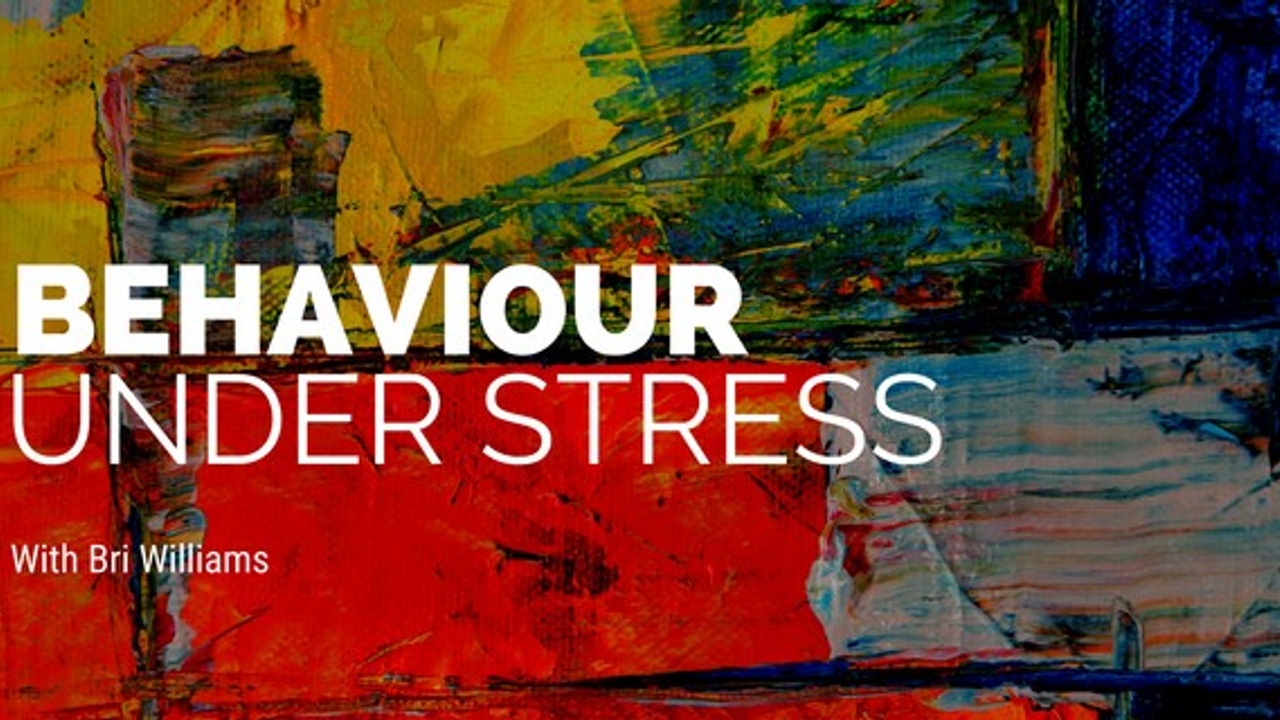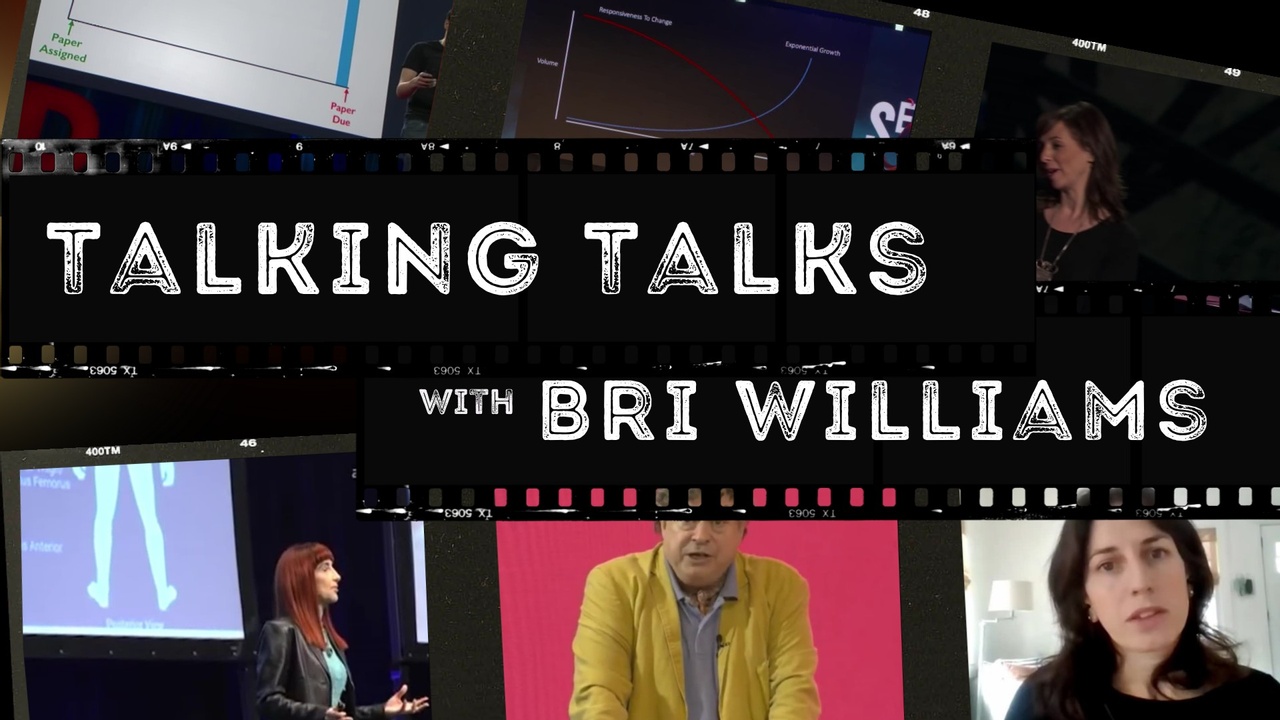Talking Talks: The power of pictures, with Lynne Cazaly
In this episode of Talking Talks Bri speaks with Lynne Cazaly.
We talk about the power of paper and technology to capture and refine ideas, the importance of allowing ideas to percolate, productivity tips like time boxing and voice-to-text, holding engagement by varying your pace and even Lynne's stationery habit!
Shownotes:
- Visit Lynne's website: http://www.lynnecazaly.com/
- Lynne's YouTube channel: https://youtube.com/c/LynneCazaly
- Music by https://www.epidemicsound.com/artists/elija...
Fraud and failure. It's been a rough couple of weeks.

The field of behavioural economics has been knocked around a couple of times over the past week or so..
Perhaps most significantly, news broke of a research study on fraud being found to have used fraudulent data. Yes, painfully ironic.
The 2012 study by Shu, Mazar, Gino, Ariely and Bazerman found getting people to sign their name at the top of a form rather than the end increased the likelihood they’d complete the form honestly.
Such an interesting finding doesn’t stay quiet for long, and th...
Talking Talks: How to be heard, with Dr Louise Mahler
In this episode of Talking Talks Bri speaks with Dr. Louise Mahler.
We talk about why leaders are disinterested in circus performers, the perils of being your "authentic self", the need to focus on your identity as a speaker, how to use humour strategically, not changing your topics and her Koosh ball approach.
Shownotes:
- View Louise in action: https://louisemahler.com.au/
- Louise's YouTube channel: https://www.youtube.com/c/LouisemahlerAu/featured
- Music by https://www.epidemicsound.co...
Behaviour under stress

Is your team getting increasingly frustrated with each other?
Are you finding your fuse is shorter than usual? You're self-medicating with booze or chocolate?
Perhaps your customers aren't answering your calls like they used to?
Behaviour under stress
Behaviour under stress is something we both witness and experience.
It shows up as sloppy and ineffective communications, overwhelm, procrastination, avoidance and anger.
How to course correct
So what can we do to course correct?
C...
Talking Talks: The other secrets to great public speaking
You know when you watch something that seems magical? It seems somehow effortless.
Well, it’s not.
So today I want to delve into the details of Chris Anderson’s excellent talk on TED talks to reveal the hidden secrets to his great presentation, the ones he didn’t tell us about.
Welcome to Talking Talks, a behind the scenes look at how great presenters make great presentations.
I’m your host, Bri Williams, and today I’m watching Chris Anderson's talk, “TED’s secret to great public speakin...
What should I do? Just do this...
It's a familiar question, but especially now.
What should I do?
- What should I do about cash flow?
- What should we do to increase sales conversion?
- What should our value proposition be?
- Should we have a returns policy?
- How should we design our website?
Our days are riddled with these types of questions, which burn up higher level thinking and distract us from our 'why'.
So I wanted to help those who are short on time and simply want answers.
What should I do?
Just Do This
Just Do Th...
Talking Talks: How much of yourself should you bring to stage? With Rachel Service
In this episode of Talking Talks I speak with Rachel Service, founder and CEO of The Happiness Concierge.
Rachel in a TEDx speaker, global expert on workplace culture and says she's never met a microphone she didn't like!
We talk about how to contain emotion, who you are really there to serve, tricks to be "present", how to cue your audience before interaction, what sort of feedback to ask for.
Shownotes:
- Find out more about Rachel: www.rachelservice.com/rachel-service
- Rachel's TEDx talk: w...
Talking Talks: How to know what to leave out, with Dave McCaughan
In this episode of Talking Talks Bri speaks with Dave McCaughan, founder of storytelling and market insights consultancy, Bibliosexual.
Dave is a master storyteller who has spoken at over 600 conferences across the globe.
We talk about how to know what to leave out of a presentation, coming up with titles that stand out and why format can be more important than content. Oh, and why 5 year old's are the toughest audience of all!
Shownotes:
- View Dave in action: https://bibliosexual.weebly.com/...
Talking Talks: How to influence an audience the right way

A large part of our ability to influence is how we engage people.
And one of the prime opportunities for that is when we are presenting to an audience, say in a team meeting, from the stage, or making a sales call.
We can use engagement techniques which appeal to the rational mind of our audience, like facts and logic.
And we can use engagement techniques which appeal to the emotional mind, like story and design.
Unfortunately, most presenters are botching the balance, and assuming the weigh...
Talking Talks: How to make a dull topic interesting, with Christian Hunt
In this episode of Talking Talks I speak with Christian Hunt, founder of Human-Risk.
Christian specialises in applying behavioural science to ethics and compliance, topics that may seem dull but he manages to bring to life for his audience.
In our discussion we cover a range of things, like why some titles can be terrible, whether you should finish in Q&A, the difference between stage and virtual presentations and why Christian thinks PowerPoint "is the devil's work"!
View a sample of Christi...

